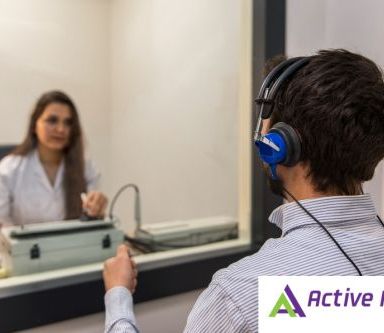
In multicultural and multilingual communities, individuals with hearing loss may have a hard time communicating and accessing services from an audiologist, such as a hearing consultation. Here are some of the specific challenges they may face and how audiologists can play a role in addressing these issues.
The reality of it all
There are many different multilingual communities worldwide. Spanish is the second most common language spoken in Nebraska. Along with that, Vietnamese and other Asian languages are spoken, as well as Arabic, German, French, Nepali, Russian, Italian and other languages of Central, Eastern and Southern Africa. Although 89% of the population of Nebraska only speaks English, it’s important to recognize that many people don’t. Some people speak multiple languages, while others only speak non-English languages. This linguistic diversity is enriching, but it can pose specific challenges for individuals with hearing loss.
The challenges
Communication barriers, limited access to information and stigmas and cultural beliefs are some of the specific challenges. Individuals with hearing loss may struggle to understand and communicate effectively in multiple languages, especially if their hearing aids or cochlear implants are not optimized for all languages they encounter.
Multilingual individuals with hearing loss may face difficulties accessing vital information, such as health care resources or emergency services, if the information is primarily available in one language.
The stigma surrounding hearing loss can vary across cultures, affecting individuals' willingness to seek audiological assistance. Cultural beliefs may also influence the perception of hearing loss and the choice of treatment.
How audiologists can help
Audiologists can play a pivotal role in addressing the unique challenges faced by individuals with hearing loss in multilingual communities. Here are some ideas:
Multilingual audiologists
Audiologists who speak multiple languages can bridge communication gaps and build trust with patients. Their linguistic abilities can ensure that patients receive accurate evaluations and recommendations.
Cultural sensitivity
Audiologists can undergo cultural competence training to understand the cultural nuances that influence a patient's perspective on hearing loss and treatment. This fosters more culturally sensitive care.
Accessible information
Audiologists can collaborate with health care providers, educators and local organizations to ensure that hearing health information is available in multiple languages, making it accessible to a broader audience.
Customized solutions
Audiologists can work with patients to customize hearing aids or cochlear implants to accommodate various languages and listening environments. Programming devices to manage multiple languages or adapt to different accents can significantly improve communication.
Education and support
Audiologists can provide education and support to patients and their families on strategies for effective communication in multilingual contexts. This includes teaching techniques like clear speech and visual cues.
Community outreach
Audiologists can engage in community outreach efforts to raise awareness about hearing health in multilingual communities. Through hosting workshops about the importance of hearing health and communication, offering screenings through local organizations and schools in different languages and creating safe spaces for sharing experiences and solutions, we can foster a more holistic community.
Hearing consultations are necessary
Audiologists are essential allies in addressing these challenges. Embracing linguistic diversity and ensuring access to audiological care and hearing consultations for all is a crucial step toward a more inclusive and accessible society. If you or a loved one are experiencing hearing loss difficulties, contact us to learn how we can help.






Comments